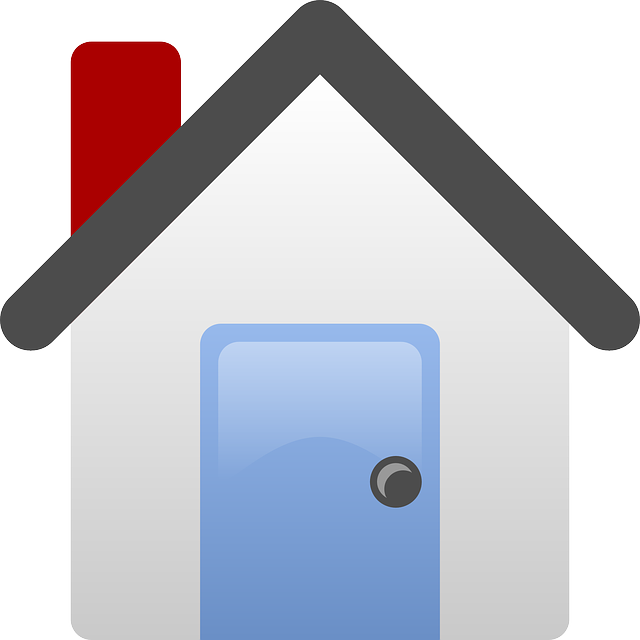When purchasing an Elta Condo top, understanding leasehold and freehold tenure types is crucial. Leasehold offers a long-term lease (up to 99 years) with ground rent and service charges, while freehold grants full property rights, eliminating rent and providing control over modifications but requiring maintenance responsibility. Freehold appeals to investors and homeowners for its financial stability and growth potential, whereas leasehold is more hands-off with shared responsibilities for common areas. The choice depends on personal preferences, financial situation, and future plans for Elta Condo top residents.
When considering purchasing an Elta condo, understanding the key differences between leasehold and freehold ownership is crucial. This article breaks down these concepts, exploring the pros and cons of each model. We delve into the advantages of freehold condominiums, such as long-term stability and control, while also highlighting potential drawbacks.
By evaluating these factors, prospective Elta condo owners can make an informed decision that aligns with their preferences and investment goals, ensuring they secure the top ownership option for their needs.
- Understanding Leasehold and Freehold Ownership in Condos
- Elta Condo Leasehold: Pros and Cons
- Advantages of Owning a Freehold Condominium
- Disadvantages of the Freehold Model for Condo Owners
- Making an Informed Decision: Elta Condo Ownership Options
Understanding Leasehold and Freehold Ownership in Condos

In the world of condominium ownership, two primary types of tenure stand out: leasehold and freehold. When considering an Elta Condo top purchase, understanding these concepts is crucial. Leasehold ownership refers to a situation where the owner has a long-term lease on the property, typically from a landlord or developer. This means they have the right to occupy and use the condo for a specified period, usually 99 years or less, but do not own the underlying land. On the other hand, freehold ownership grants full property rights, including possession of both the building and the land it stands on.
Freehold owners have more autonomy, as they can sell, rent, or modify their property without restrictions tied to a lease. In contrast, leaseholders must adhere to the terms of their lease, which may include regulations regarding renovations, subletting, and maintenance responsibilities. For Elta Condo top residents, choosing between these options depends on personal preferences, investment goals, and long-term plans.
Elta Condo Leasehold: Pros and Cons

Elta Condo Leasehold offers several advantages for potential residents. One of the key benefits is the long-term security it provides, as leaseholders typically have a substantial amount of time (often 99 years) to enjoy their home without worrying about renewing a lease or facing eviction. This stability can be especially appealing in today’s dynamic market, offering peace of mind for those seeking a permanent residence.
However, there are also considerations. Leasehold properties often come with ground rent and service charges that can accumulate over time, potentially increasing significantly. Unlike freehold owners who have full control over their property, leaseholders may face restrictions on renovations or alterations, and decisions regarding the building’s maintenance and upgrades are usually in the hands of the freeholder or a management company. These factors should be carefully weighed against the benefits to make an informed decision when considering an Elta Condo Leasehold purchase.
Advantages of Owning a Freehold Condominium

Owning a freehold condominium offers several significant advantages that make it an attractive option for many prospective buyers. One of the most notable benefits is the absence of rent or monthly fees, which can lead to substantial long-term savings compared to leasehold properties. With a freehold, you have complete control over your asset, including the ability to modify and customize your unit to suit your tastes without needing approval from a landlord or condo association.
Additionally, freehold condominiums often appreciate in value more steadily over time due to their permanent nature and the lack of rent control. This can be especially advantageous for investors looking to build wealth through real estate. Moreover, homeowners enjoy greater flexibility in terms of mortgage options and insurance policies, allowing them to tailor these to their specific needs and budgets. These factors contribute to a more secure and potentially lucrative investment, making freehold ownership an appealing choice for those seeking both financial stability and potential growth in the Elta Condo market.
Disadvantages of the Freehold Model for Condo Owners

While the freehold model offers a sense of ownership and control, it comes with several disadvantages for condo owners. One significant drawback is the financial burden. Condo owners under this system are responsible for all maintenance and repair costs associated with their unit and common areas, which can be substantial. This includes structural repairs, roof replacements, and landscaping, among other expenses. Unlike leasehold properties where these responsibilities are often managed by a landlord or condo association, freehold owners bear the full financial responsibility, which can put a strain on their budget.
Additionally, freehold ownership requires a high level of involvement and commitment. Owners need to actively participate in decision-making processes for the property, including voting on important matters like upgrades, maintenance schedules, and budget allocations. This level of engagement may not suit everyone, especially those with busy lifestyles or limited time. In contrast, Elta Condo leasehold offers a more hands-off approach, allowing owners to enjoy their property without the extensive involvement typically required in freehold communities.
Making an Informed Decision: Elta Condo Ownership Options

When considering purchasing an Elta Condo, one of the most important decisions future owners must make is between leasehold and freehold options. Both have their unique advantages and disadvantages, making it crucial to understand the differences before signing on the dotted line.
Freehold ownership offers a sense of permanence and control as you own both the unit and the land it sits on. This means no lease renewals or rent payments are required, providing long-term financial stability. In contrast, leasehold properties are part of a larger condominium association, which manages common areas and provides amenities. While this can offer shared responsibilities and conveniences, there may be additional fees and restrictions associated with the lease terms. Choosing between these options depends on personal preferences, financial capabilities, and future plans—all factors that contribute to making an informed decision about your Elta Condo ownership journey at the top of the market.
When deciding between Elta Condo leasehold and freehold ownership, understanding the pros and cons of each is key. While leasehold offers flexibility and lower initial costs, freehold provides long-term stability and control over property decisions. Ultimately, the top choice depends on individual preferences, financial readiness, and future plans, ensuring a satisfying and secure living experience in an Elta Condo.
